Back in the Atlantic Division, the Montreal Canadiens will undeniably be in tough to make the playoffs in 2022. It doesn’t mean they won’t, because, as evidenced by their recent run to the Stanley Cup Final, people should count out this team at their own peril.
Of course, this isn’t the exact same team that won the Campbell Bowl for the first time in history. The Habs have undergone subtle changes ever since, with, most notably, Jesperi Kotkaniemi moving on to the Carolina Hurricanes.
Now, it would be hard to call Kotkaniemi a scapegoat for several reasons. For starters, the Habs did just reach the Stanley Cup Final, where they lost to a superior opponent. So, for what exactly would he be scapegoated? He wasn’t even in the lineup when the Canadiens lost the deciding Game 5… although him having been a healthy scratch does tend to play into the hands of his critics somewhat.
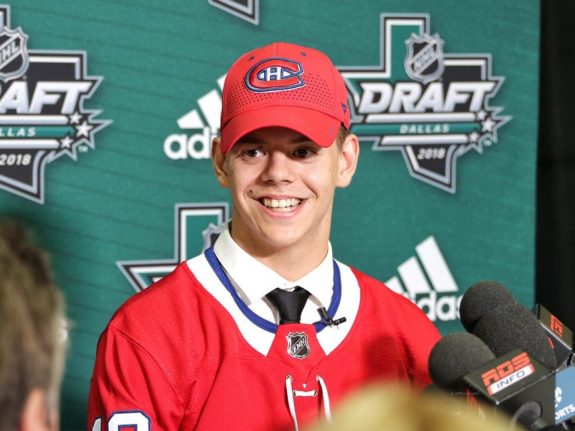
There’s no disputing Kotkaniemi hasn’t lived up to his new $6.1 million salary at this juncture of his young career. So, his decision to sign the Hurricanes’ offer sheet in the first place has earned him (justifiably or not) the ire of a great deal of Habs fans, for whom the narrative has shifted.
For some, Kotkaniemi has gone from being an up-and-coming, clutch top-six center to a player that will never amount to much of anything. For others, ex-Canadiens employees even, like former goaltending coach Stephane Waite, Kotkaniemi needs to mature… which, with Kotkaniemi being 21 and all, is kind of like saying Carey Price needs to stop the puck (or at least needed to a better job of it prior to Waite’s dismissal). Meanwhile, even though general manager Marc Bergevin obviously kept things professional when he announced the decision not to match the offer sheet, he certainly didn’t dispel that same notion with his comments.
The whole Kotkaniemi saga serves as a stark reminder of how quickly a fanbase, not to mention the organization itself, can turn on someone when things don’t go right. So, if the Canadiens fail to reach the playoffs one season after reaching the Stanley Cup Final, who’s the likeliest to take the blame? That’s right. It’s time for the latest edition of Canadiens Scapegoat Search!
5. Ben Chiarot
As the Kotkaniemi saga helped prove, when leveling criticism at someone, it helps if they’re on their way out of the organization. The team is able to control the narrative to a greater extent. And, if you are going to scapegoat someone, you kind of need them to play a key role on the team. Unfortunately for the Habs, the only player that fits both criteria is Ben Chiarot.
Now, Chiarot obviously stepped up to a huge degree these past playoffs, leading the Canadiens in ice time per game (25:15). He embodies the hard-nosed style of defense the corps is expected to play this coming season, especially with a projected top four of Jeff Petry, Joel Edmundson, David Savard and Chiarot. So, Chiarot is far from an ideal candidate.
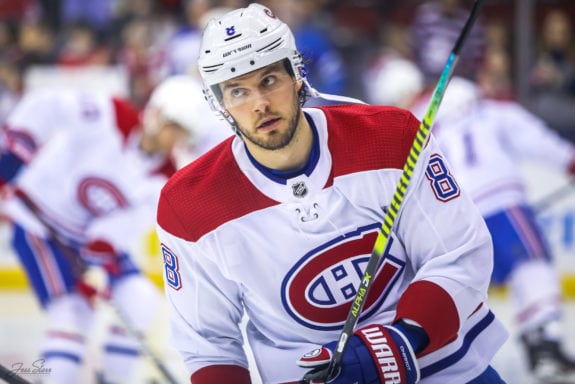
That having been said, Chiarot is still a pending unrestricted free agent the Canadiens can arguably stand to trade as soon as possible. While his pairing with the now-injured Shea Weber overcame the odds to play inspired playoff hockey down the stretch, it was also a pairing that struggled during the regular season.
Now, Chiarot’s likeliest partner is Savard, who’s a stay-at-home defenseman similar to himself and Weber. It’s entirely possible the same issues Chiarot experienced with Weber will come to pass with Savard. The only issue is Savard is signed until 2025.
If the Canadiens fail to dictate the tempo of play with Chiarot and Savard on the ice with some regularity, it’s entirely possible Chiarot doesn’t get re-signed (at the very least). With young defensemen like Alexander Romanov and Mattias Norlinder knocking at the door, few should be surprised if the Canadiens don’t re-up him, even if scapegoating him as well seems unlikely at this stage.
4. Marc Bergevin
Bergevin’s current contract is expiring at the end of this coming season, meaning he may be on his way out of the organization. If the Habs do miss the playoffs, he may be the one to draw the ire of Canadiens fans under those circumstances… at least under normal circumstances I should say, i.e., not having just reached the Stanley Cup Final.
Ultimately, last postseason’s magical run likely earned Bergevin a mulligan. In fact, reports indicate Bergevin has an extension on the table that he simply has yet to sign (or decide to sign), in spite of the fact that he came oh, so close to missing the playoffs in four of five seasons in 2020. Another missed opportunity in 2022 would be a sign of the Habs regressing, Stanley Cup Final appearance in 2021 or not.
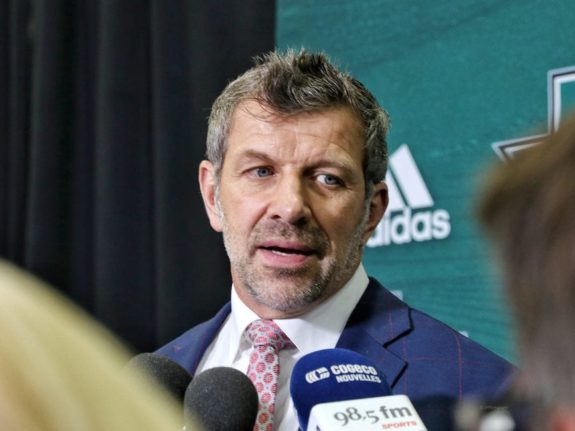
Objectively speaking, Bergevin’s overall record isn’t great and his current offseason has failed to live up to the expectations of his last, but the consensus seems to be he’s entitled to a level of leniency. Even without the three rounds won last playoffs, the Weber injury theoretically put him in a bad spot.
Granted, it probably works out best for the Canadiens if they don’t have Weber on the payroll into the twilight of his career. However, in the short term, after the playoff run both the Habs captain and the Habs as a whole enjoyed, Bergevin’s likely going to come out of this unscathed, still as GM, for as long as he wants the job.
3. Jonathan Drouin
The good news is Jonathan Drouin is back after having taken a leave of absence for personal reasons. The bad news is great things are still expected of the native son.
Sometimes picking a scapegoat is as easy as singling out the highest-paid player. Unfortunately for Drouin, that’s Carey Price ($10.5 million cap hit), who’s under contract until 2050 and who just stood on his head for three rounds to almost lead the Habs to a championship.
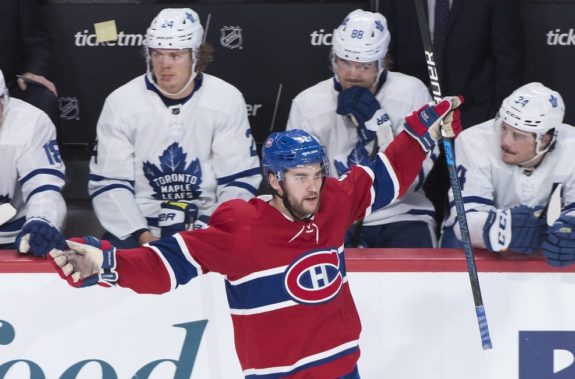
Next up is Brendan Gallagher ($6.5 million). While Gallagher didn’t produce offensively during the playoffs, his role did change, playing on a line with Phillip Danault and against the opposition’s top competition. Nevertheless, there is little denying the team counts on him for offense. With his six-year, $39 million extension just coming into effect though, it would be hard for the Habs to scapegoat him without it looking bad on them. He also brings certain intangibles and leadership to table, qualities over which management tends to go gaga.
Defenseman Jeff Petry earns the next-highest cap hit ($6.25 million). He’s in a similar situation relative to Bergevin, though. With Weber injured, the lion’s share of responsibility on defense will fall on his shoulders. If he’s unable to fill his new role as an undisputed top defenseman on this team, he’ll almost be a victim of circumstance.
That brings us to Drouin ($5.5 million), who hasn’t lived up to the hype. To their credit, the Canadiens have handled the situation up to this point admirably, putting priority over his well-being. Furthermore, over his four seasons with the Habs, Drouin’s still produced in line with what he’s been paid as a top-six forward. Add to that his recent King Clancy Memorial Trophy nomination and likely consideration for the Bill Masterton Memorial Trophy next season and common sense just might win out, that Drouin could be part of the solution in Montreal after all.
2. Alexander Romanov
You don’t need to look far for an example of what can happen to Romanov if the Canadiens fail to play their cards right. Similar to Kotkaniemi, Romanov was a healthy scratch during the playoffs. He even got in less games (four compared to 19), but, of course, whereas Kotkaniemi was taken out of the lineup to end the series against the Lightning, Romanov was put in, even scoring a goal in Game 4 to help extend it.
Now, Romanov’s lack of production up to this point (six points all of last season) makes an offer sheet unlikely once his contract expires at the end of next season. However, that doesn’t change the fact that there are undeniable parallels to his development relative to Kotkaniemi’s, starting with both having been drafted in 2018. Both joined the Canadiens from overseas, albeit at different times. Both also maybe joined the Habs too soon, at least relative to the American Hockey League in Romanov’s case.
However, Romanov’s reported European Assignment Clause prevents the Canadiens from demoting him without giving him the option to go back to the Kontinental Hockey League. In such an instance, the Canadiens would ironically lose control over his development.
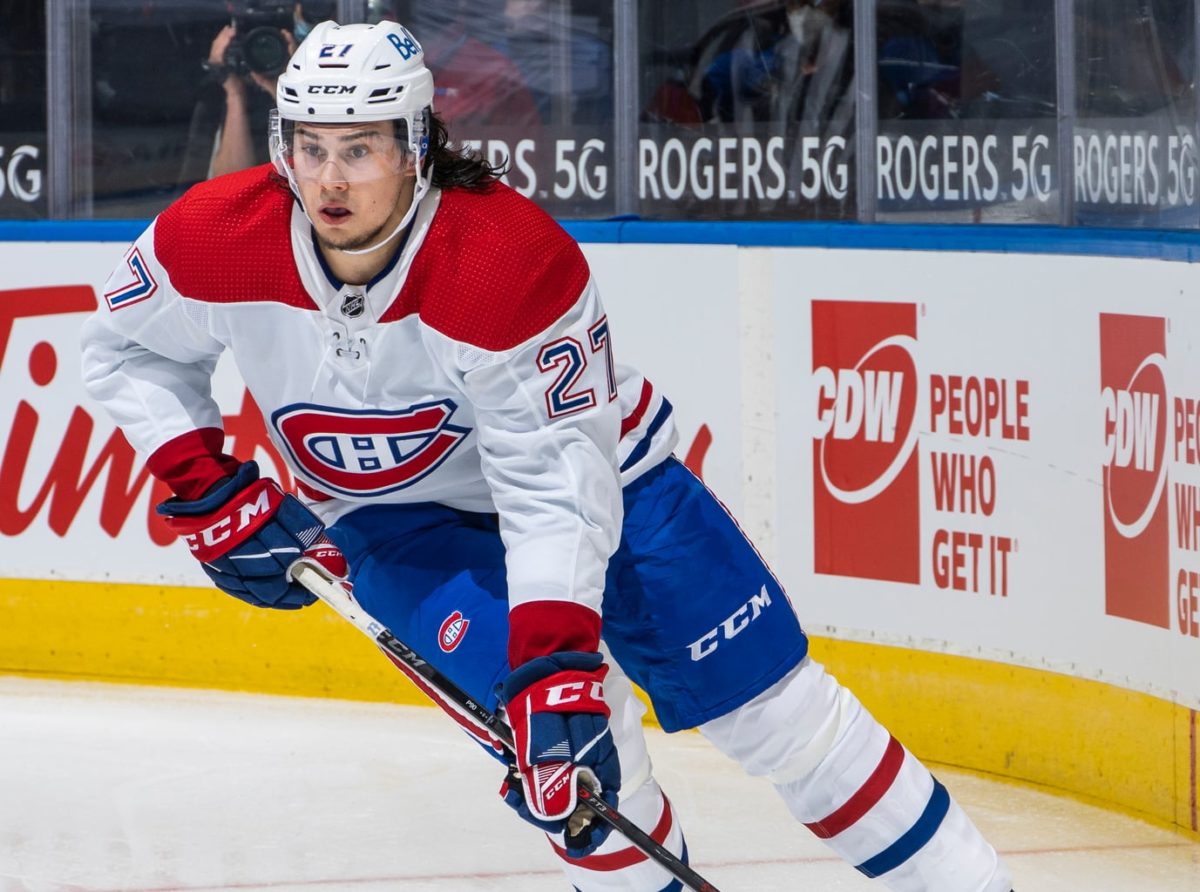
Of course, there are no guarantees Romanov takes it, but it does present the Habs with several unsavory outcomes. They can continue to play him in the NHL, where he may or may not satisfy the coaching staff with his development, or they can try to send him to the AHL in the event of the latter, in which case he’ll have every right to go home. His contract is also expiring at the end of the season, at which point he can just easily go back to the KHL if he doesn’t feel the Canadiens have his best interests at heart.
You can almost see this playing out in slow motion, helpless to stop the inevitable, can’t you? Of course, at this juncture, Romanov is projected to play on the third pairing and third-pairing defensemen are rarely to blame for an entire disappointing season, but yet another prospect potentially failing to accept the development plan the team has laid out for him, right after Kotkaniemi? It makes for a decent distraction from actual systemic issues. One can only hope the Habs take the Kotkaniemi saga as a cautionary tale, because Romanov has a huge part to play in the team’s future.
1. Government of Quebec
Even if the provincial government’s heart is in the right place, it’s nevertheless putting the Canadiens at a disadvantage, restricting them to 7,500 fans at home games this coming season. At least that’s what the Habs can say if the season fails to turn out as hoped, especially if they fail to deliver in the supposedly friendly confines of the Bell Centre.
In effect, it’s what the Canadiens have said already, choosing their words carefully of course. For example, head coach Dominique Ducharme called the government’s decision to allow just 3,500 fans during the Final “disappointing” (from ‘’It’s disappointing,’ Habs coach says about 3,500 fans at Bell Centre,’ Montreal Gazette, July 2, 2021). The team had unsuccessfully requested an increase to 50% capacity to benefit from the same boost the Lightning got in Tampa, according to chief commercial officer France Margaret Belanger.
Of course, the policy is subject to change, and the hope is it will, but only for the right reasons. The pandemic is still raging. Logically speaking, health officials know more about these things than sports franchises who, at the end of the day, are operating a business.
It should be pointed out the Canadiens didn’t lose the Stanley Cup Final because of a lack of fans in the building. They ran into a better team in the Lightning. And the Habs were able to beat the Vegas Golden Knights in Round 3 despite facing a similar obstacle.
To their credit, the fans who did make it into the Bell Centre for Games 3 and 4 against the Lightning did make it sound as if there were far more in attendance. So, hopefully, in the unfortunate event the Canadiens miss the playoffs, they’ll stop short of blaming the fans for not being loud enough. That argument at least wouldn’t hold water.